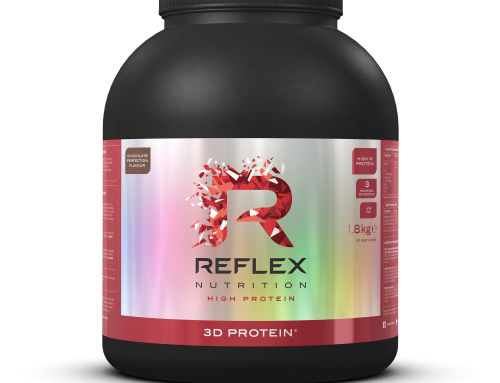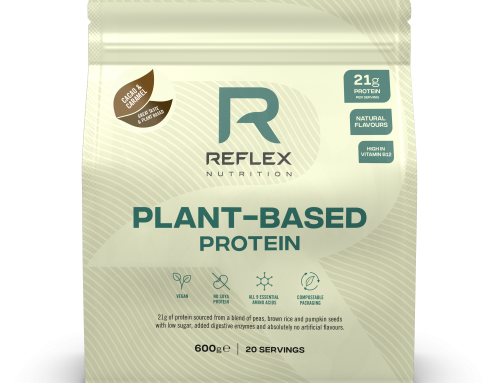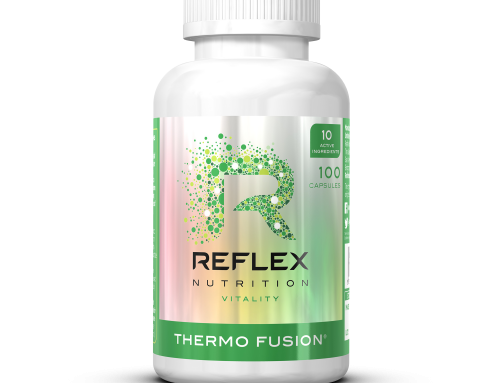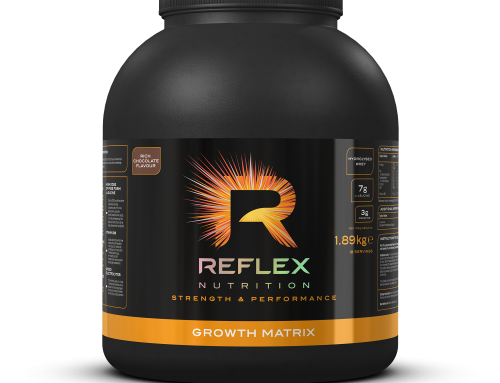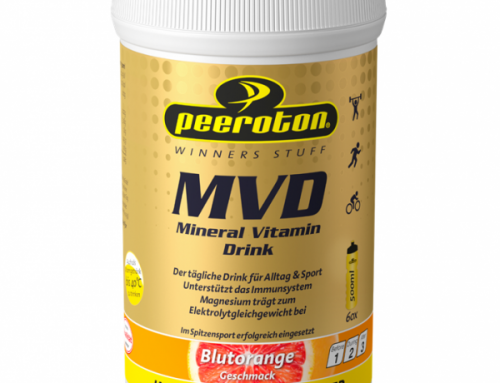Matrix Alpha Test Review
Matrix Alpha Test is a protein powder from UK Based company matrix-nutrition.co.uk. The description of this product claims that it can create the ultimate anabolic state and supports the rapid development of muscle mass.
Ingredients
Whey, Milk, Soya Protein Isolate
Whey, soy and milk protein helps aid muscle protein synthesis when combined with resistance training (1, 2). Other key features include increasing muscle mass (3), an increase in lean body mass (4) and greater recovery from exercise (5). Longer periods of supplementation have shown greater gains in fat free mass (6).
Muscle protein synthesis is increased due to high concentration of Leucine (BCAA) which is a signalling molecule needed to increase muscle protein synthesis (7). Consumption of whey protein helps increase muscle mass due to a greater amount of peripheral nitrogen retention whereas soy protein has been found to have a greater effect on splanchnic protein synthesis (8).
The reason for greater recovery of exercise can be due to a post exercise insulin response (9, 10) which means glycogen resynthesis occurs rapidly so exercise can be prolonged, with greater training volume increased hypertrophy and decreased muscle damage.
Tribulus
Tribulus is an ingredient derived from a plant. It has claims that it can naturally boost testosterone. Studies that have tried to observe this have shown that there is no evidence to suggest that Tribulus can boost testosterone (11,12,13).
D-Aspartic Acid
Aspartic acid is a non-essential amino acid, and is a building block for proteins.
Fenugreek
Fenugreek Extract is derived from the seeds of the plant. Suggested benefits of this ingredient include lowering cholesterol, and reducing atherosclerosis. There is insufficient evidence for this however and more research is needed to elucidate these effects.
Maca Powder
Maca Powder is derived from the root of the plant Lepidium meyenii. Its claims that it is a testosterone booster however studies have found this not be the case and these claims are not found (14,15,16,17).
Creatine Nitrate
Creatine has been found to increase the replenishment of ATP stores in the skeletal muscles (18). It is attributed to a greater rate of phosphocreatine resynthesis during the rest periods. Higher sprint speeds reported (19). There have been numerous theories proposed as to why creatine is a benefit to short term high intensity exercise (20). One theory is that the increased amount of phosphocreatine, (PCr), can be used as an immediate buffer to ATP which reduces the dependence of glycolysis which delays the production of lactate and hydrogen ions during exercise thus prolonging the activity by delaying the onset of fatigue, (21).
HMB
HMB or otherwise known as β-Hydroxy β-Methylbutyrate is a chemical component of leucine. HMB has been found to help reduce the breakdown of protein within the muscle (22, 23), however it seems to be less effective as leucine in protein synthesis (24). It is feasible to assume that HMB can help muscle wastage in athletes when they are in out of season, however more research is needed to understand this.
Peptide Bonded Glutamine
Glutamine is a naturally non-essential neutral amino acid that helps with the transport of nitrogen between tissues. Heavy exercise has shown a reduction of glutamine in the blood (25). The amount of glutamine in the muscle is known to be related to the rate of protein synthesis (26) and glycogen synthesis (27) in the first few hours of recovery period of exercise.
L-Leucine, L-Isoleucine, L-Valine
Leucine, Isoleucine and Valine are all Branched chain amino acids (BCAA’s). They are essential for protein synthesis which is stimulated after exhaustive exercise (28) as well as the critical metabolic process in muscle (29, 30). The metabolic roles of Leucine include energy production and the modulator of muscle protein synthesis via the insulin signalling pathway. There is a reason to suggest that it helps maintenance of muscle mass during weight loss (31). Leucine has also been shown to help in the direct maintenance of glucose homeostasis by improving the redistribution of glucose via the glucose – alanine cycle (32).
L-Glycine
Glycine is one of the components of creatine which helps increase muscle growth and energy during exercise (33). When metabolised it acts as an amino acid and regulates blood sugar levels which can also control that amount of sugar released into the blood (34).
Dextrose Monohydrate
Dextrose monohydrate is a fast absorbing carbohydrate that gives a quick release of energy. It is usually found in supplements as its properties mix very well with other substances.
Acacia Gum
Acacia gum is a water soluble dietary fibres, which have been reported to reduce total cholesterol; however there seems to be insufficient evidence to confirm this theory. (35)
Sucralose
Sucralose is a sweetener that is calorie free. This ingredient is used in many products and is used to make the product taste sweeter and does not have any nutritional benefit.
Summary
This product can achieve the claims that it can support the development of lean muscle mass however there are certain ingredients within this product for which there is no scientific evidence that they can help boost testosterone and it is hard to measure the second claim that it can create the ultimate anabolic state. This product is recommended to be taken either during or after workout. This product has no banned substances when referring to the WADA prohibited list when observing the label/ ingredients posted on the website. This supplement is recommended for people/athletes who want to increase muscle mass.
*NOTE – This product has not been tested in a laboratory and may contain other substances that may not appear on the label
References
1 – Coker, R. H., Miller, S., Schutzler, S., Deutz, N., & Wolfe, R. R. (2012). Whey protein and essential amino acids promote the reduction of adipose tissue and increased muscle protein synthesis during caloric restriction-induced weight loss in elderly, obese individuals. Nutr J, 11(1), 105.
2 – Hulmi, J. J., Lockwood, C. M., & Stout, J. R. (2010). Review Effect of protein/essential amino acids and resistance training on skeletal muscle hypertrophy: A case for whey protein.
3 – Pasiakos, S. M., McLellan, T. M., & Lieberman, H. R. (2015). The effects of protein supplements on muscle mass, strength, and aerobic and anaerobic power in healthy adults: a systematic review. Sports Medicine, 45(1), 111-131.
4 – Volek, J. S., Volk, B. M., Gómez, A. L., Kunces, L. J., Kupchak, B. R., Freidenreich, D. J., … & Kraemer, W. J. (2013). Whey protein supplementation during resistance training augments lean body mass. Journal of the American College of Nutrition, 32(2), 122-135.
5 – Hansen, M., Bangsbo, J., Jensen, J., Bibby, B. M., & Madsen, K. (2014). Effect of Whey Protein Hydrolysate on Performance and Recovery of Top-Class Orienteering Runners. International journal of sport nutrition and exercise metabolism.
6 – Hartman, J. W., Tang, J. E., Wilkinson, S. B., Tarnopolsky, M. A., Lawrence, R. L., Fullerton, A. V., & Phillips, S. M. (2007). Consumption of fat-free fluid milk after resistance exercise promotes greater lean mass accretion than does consumption of soy or carbohydrate in young, novice, male weightlifters. The American journal of clinical nutrition, 86(2), 373-381.
7- Atherton, P. J., Smith, K., Etheridge, T., Rankin, D., & Rennie, M. J. (2010). Distinct anabolic signalling responses to amino acids in C2C12 skeletal muscle cells. Amino acids, 38(5), 1533-1539.
8 – Fouillet, H., Mariotti, F., Gaudichon, C., Bos, C., & Tomé, D. (2002). Peripheral and splanchnic metabolism of dietary nitrogen are differently affected by the protein source in humans as assessed by compartmental modeling. The Journal of nutrition, 132(1), 125-133.
9- Hulmi, J. J., Volek, J. S., Selänne, H. A. R. R. I., & Mero, A. A. (2005). Protein ingestion prior to strength exercise affects blood hormones and metabolism. Medicine and science in sports and exercise, 37(11), 1990-1997.
10 – Power, O., Hallihan, A., & Jakeman, P. (2009). Human insulinotropic response to oral ingestion of native and hydrolysed whey protein. Amino acids, 37(2), 333-339.
11- Rogerson, S., Riches, C. J., Jennings, C., Weatherby, R. P., Meir, R. A., & Marshall-Gradisnik, S. M. (2007). The effect of five weeks of Tribulus terrestris supplementation on muscle strength and body composition during preseason training in elite rugby league players. The Journal of Strength & Conditioning Research, 21(2), 348-353.
12 – Neychev, V. K., & Mitev, V. I. (2005). The aphrodisiac herb Tribulus terrestris does not influence the androgen production in young men. Journal of ethnopharmacology, 101(1), 319-323.
13 – Sellandi, T. M., Thakar, A. B., & Baghel, M. S. (2012). Clinical study of Tribulus terrestris Linn. in Oligozoospermia: A double blind study. Ayu, 33(3), 356.
14 – Brooks, N. A., Wilcox, G., Walker, K. Z., Ashton, J. F., Cox, M. B., & Stojanovska, L. (2008). Beneficial effects of Lepidium meyenii (Maca) on psychological symptoms and measures of sexual dysfunction in postmenopausal women are not related to estrogen or androgen content.Menopause, 15(6), 1157-1162.
15 – Gonzales, G. F., Cordova, A., Vega, K., Chung, A., Villena, A., Góñez, C., & Castillo, S. (2002). Effect of Lepidium meyenii (MACA) on sexual desire and its absent relationship with serum testosterone levels in adult healthy men.andrologia, 34(6), 367-372.
16 – Gonzales, G. F., Cordova, A., Vega, K., Chung, A., Villena, A., & Góñez, C. (2003). Effect of Lepidium meyenii (Maca), a root with aphrodisiac and fertility-enhancing properties, on serum reproductive hormone levels in adult healthy men. Journal of Endocrinology, 176(1), 163-168.
17 – Zenico, T., Cicero, A. F. G., Valmorri, L., Mercuriali, M., & Bercovich, E. (2009). Subjective effects of Lepidium meyenii (Maca) extract on well‐being and sexual performances in patients with mild erectile dysfunction: a randomised, double‐blind clinical trial. Andrologia, 41(2), 95-99.
18 – Greenhaff, P.L., Bodin, K., Soderlund, K., Hultrnan, E. (1994). The influence of oral creatine supplementation on muscle phosphocreatine resynthesis following intense contraction in man. American Journal of Physiology, 266(5), 725-730.
19 – Jones, A. M., Atter, T., & Georg, K. P. (1999). Oral creatine supplementation improves multiple sprint performance in elite ice-hockey players. Journal of sports medicine and physical fitness, 39, 189-196.
20 – Hultman, E., Soderland, K., Timmons, J. A., Cederblad, G. & Greenhaff, P. L. (1996). Muscle creatine loading in men. Journal of Apllied Physiology. 81(1), 232-237.
21 – Casey, A., Constantin – Teodosiu, D., Howell, S., Hultman, E., & Greenhaff, P. L,. (1996). Creatine ingestion favourably affects performance and muscle metabolism during maximal exercise in humans. American Journal of Physiology. 271(1), 31-37.
22 – Wilson, J. M., Lowery, R. P., Joy, J. M., Walters, J. A., Baier, S. M., Fuller, J. C., … & Duncan, N. M. (2013). β-Hydroxy-β-methylbutyrate free acid reduces markers of exercise-induced muscle damage and improves recovery in resistance-trained men. British Journal of Nutrition, 110(03), 538-544.
23 – Hoffman, J. R., Cooper, J., Wendell, M., Im, J., & Kang, J. (2004). EFFECTS OF [beta]-HYDROXY [beta]-METHYLBUTYRATE ON POWER PERFORMANCE AND INDICES OF MUSCLE DAMAGE AND STRESS DURING HIGH-INTENSITY TRAINING. The Journal of Strength & Conditioning Research, 18(4), 747-752.
24 – Nissen, S. L., & Sharp, R. L. (2003). Effect of dietary supplements on lean mass and strength gains with resistance exercise: a meta-analysis. Journal of Applied Physiology, 94(2), 651-659.
25 – Parry-Billings, M., Budgett, R., Koutedakis, Y., Blomstrand, E., Brooks, S.., Williams, C., & Newsholme, E. A. (1992). Plasma amino acid concentrations in the overtraining syndrome: possible effects on the immune system. Medicine and science in sports and exercise, 24(12), 1353-1358.
26 – Rennie, M. J., Edwards, R. H. T., Krywawych, S., Davies, C. T., Halliday, D., Waterlow, J. C., & Millward, D. J. (1981). Effect of exercise on protein turnover in man. Clin Sci, 61(5), 627-639.
27 – Bowtell, J. L., Gelly, K., Jackman, M. L., Patel, A., Simeoni, M., & Rennie, M. J. (1999). Effect of oral glutamine on whole body carbohydrate storage during recovery from exhaustive exercise. Journal of Applied Physiology, 86(6), 1770-1777.
28 – Coker, R. H., Miller, S., Schutzler, S., Deutz, N., & Wolfe, R. R. (2012). Whey protein and essential amino acids promote the reduction of adipose tissue and increased muscle protein synthesis during caloric restriction-induced weight loss in elderly, obese individuals. Nutr J, 11(1), 105.
29 – Hulmi, J. J., Lockwood, C. M., & Stout, J. R. (2010). Review Effect of protein/essential amino acids and resistance training on skeletal muscle hypertrophy: A case for whey protein.
30 – Pasiakos, S. M., McLellan, T. M., & Lieberman, H. R. (2015). The effects of protein supplements on muscle mass, strength, and aerobic and anaerobic power in healthy adults: a systematic review. Sports Medicine, 45(1), 111-131.
31 – Volek, J. S., Volk, B. M., Gómez, A. L., Kunces, L. J., Kupchak, B. R., Freidenreich, D. J., … & Kraemer, W. J. (2013). Whey protein supplementation during resistance training augments lean body mass. Journal of the American College of Nutrition, 32(2), 122-135.
32 – Hansen, M., Bangsbo, J., Jensen, J., Bibby, B. M., & Madsen, K. (2014). Effect of Whey Protein Hydrolysate on Performance and Recovery of Top-Class Orienteering Runners. International journal of sport nutrition and exercise metabolism.
33 – Hultman, E., Soderlund, K., Timmons, J. A., Cederblad, G., & Greenhaff, P. L. (1996). Muscle creatine loading in men. Journal of Applied Physiology, 81(1), 232-237.
34 – Felig, P., & Wahren, J. (1971). Influence of endogenous insulin secretion on splanchnic glucose and amino acid metabolism in man. Journal of Clinical Investigation, 50(8), 1702.
35 – Jensen, C. D., Spiller, G. A., Gates, J. E., Miller, A. F., & Whittam, J. H. (1993). The effect of acacia gum and a water-soluble dietary fiber mixture on blood lipids in humans. Journal of the American College of Nutrition, 12(2), 147-154.
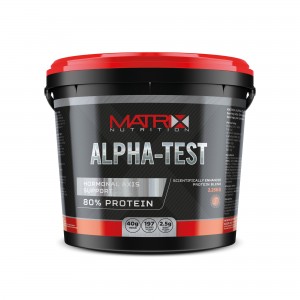
| Use for | Muscle Gain |
| Website | matrix-nutrition.co.uk |
| Price | £29.99 – £46.99 |
